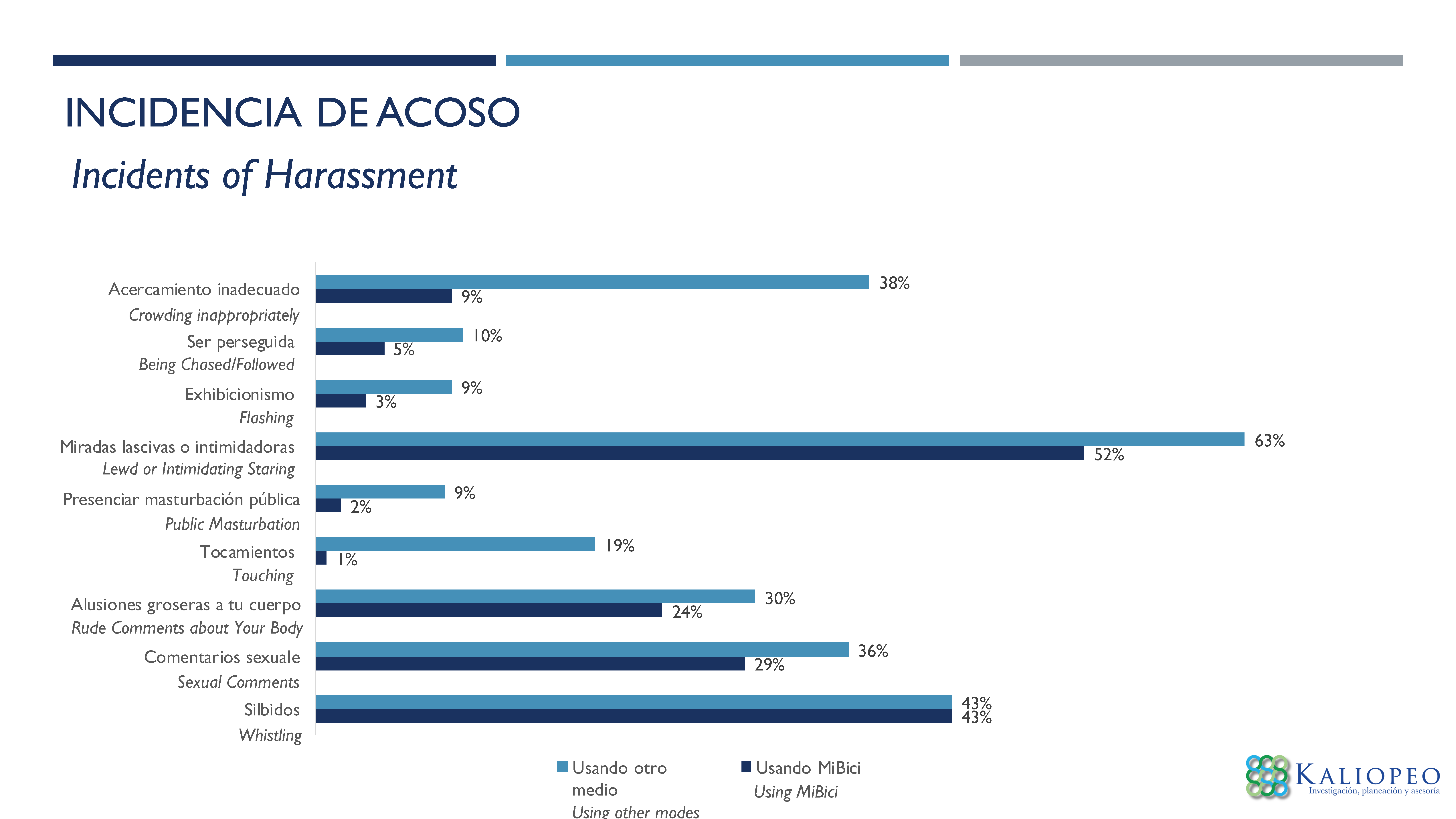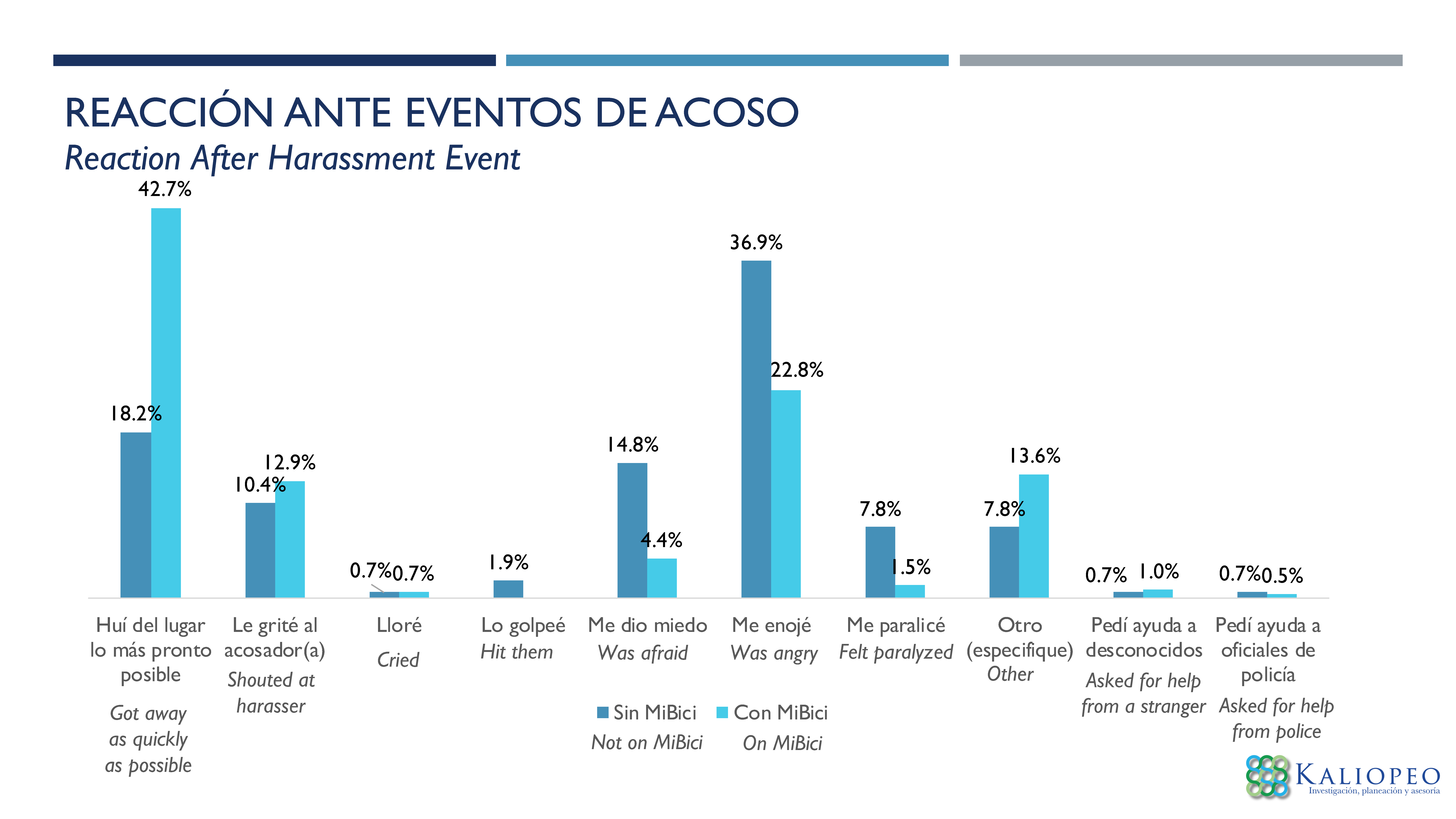Bikeshare as a Tool to Help Women Feel Safer in Transit
Photo: A woman rides MiBici in Guadalajara. Photo by Alethia García
Bikeshare can help women feel safer and more comfortable in transit, according to a study conducted in Guadalajara.
This summer, Kaliopeo, a socioeconomic research firm, conducted a study in cooperation with MiBici (Guadalajara’s bikeshare public system), BKT public bike (operator of the MiBici system in Guadalajara) and IMEPLAN (Metropolitan Institute of Planning in Guadalajara), on women’s’ experience with street harassment both on and off the system. This was the second collaborative study between the two groups focused on gender and sociocultural motivations behind using bikeshare.
In Jalisco, 72% of women feel unsafe using public transport.* They considered the public transport that they use daily to be “insecure” to carry out their activities . Researcher Zafiro Rizo and her colleagues entered this research with a hypothesis: Bikeshare is a tool to improve the mobility experience of women, considering occurrences of street harassment. The researchers asked not only about the experience women have on MiBici and other forms of public transit, but also their reactions to street harassment as it happened.

The survey studied nine manifestations of street harassment on both MiBici and other forms of public transit. Results showed decreases in all but one manifestation. Physical and visual manifestations of street harassment, particularly touching, showed the greatest comparative decrease when using bikeshare. Verbal manifestations of street harassment showed less pronounced decreases, with the exception of whistling, which was experienced with the same frequency.

The use of bikeshare also changed women’s reaction to street harassment. Women experiencing street harassment while on bikeshare were less afraid, much less likely to feel paralyzed in the moment, and more than twice as likely to get away as quickly as possible.
Also in this survey, 85% of women users said that they felt safe using MiBici. More than 70% of women users also found improvements in their comfort, cost, and mood over other modes of transportation.
“I absolutely think the results could be applied to bikeshare systems in other cities and countries,” said researcher Zafiro Rizo. Unfortunately, only 30% of MiBici users are women, but Zafiro hopes that number will increase as more women feel comfortable riding. “This system is a tool, and we need to work with the government to close the gender gap we see in bikeshare use.”
View in NABSA’s Knowledge ShareNABSA members can view all preliminary survey results, as presented at the 2019 Enlabici Conference in Guadalajara, on NABSA’s Knowledge Share.
Note: Spanish version only. English version forthcoming.
Methodology
Kaliopeo created an online survey that was distributed only to MiBici’s users who self-identify as female. The survey was sent via email to the address they used to register for the service, and open from a Friday (5/10/19) to Monday (5/13/19). 412 responses were received. The results have a 95% confidence level.
